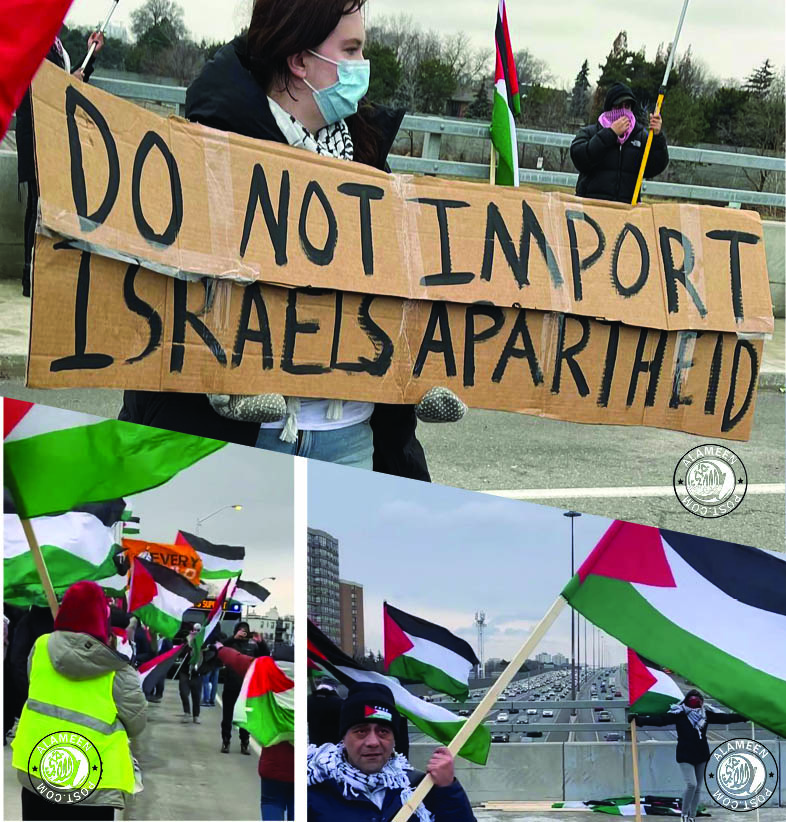
Court Rules on Injunction Motion in B’nai Brith vs. Pro Palestine Demonstrations on 401 overpass in Toronto
2-02-2024
 Email
to a friend Email
to a friend
 Post
a comment Post
a comment
 Print Print
In a recent legal development, the Superior Court of Justice - Ontario has ruled on a motion filed by B’nai Brith National Organization of Canada (B’Nai Brith) against Palesign and others, seeking an interim interlocutory injunction to restrain demonstrations on the Avenue Road and Hwy 401 overpass and within 500 meters of the on-ramps.
Background:
The motion was prompted by a series of demonstrations organized by Palesign, leading to disruptions and public safety concerns. Occurring on December 24, 2023, December 30, 2023, January 1, 2024, and January 6, 2024, these protests resulted in confrontations, police interventions, and raised concerns about the safety and well-being of the Jewish community in the vicinity as claimed by B’Nai Brith.
“Our injunction is aimed at preventing further demonstrations on and near the 401-Avenue Road overpass in Toronto.
We hope that, before the next hearing, demonstrators cease and desist from disturbing the residents, schools and businesses in this area and refrain from further demonstrations targeting the local Jewish community.”
Police Response:
On January 11, 2024, the Toronto Police Services (TPS) issued a directive, clearly stating that demonstrations on the overpass would not be permitted and that violators may face arrest. Subsequently, the police took action, arresting demonstrators on January 13, 2024, and reiterating their commitment to addressing public safety concerns related to overpass demonstrations on January 21, 2024.
Plaintiff's Motion and Concerns:
B’Nai Brith’s motion sought an injunction to prevent further demonstrations and called for police enforcement with the power of arrest and detention for non-compliance. The Plaintiff argued that the demonstrations constituted public and private nuisances and posed a significant threat to the safety of the Jewish community.
However, concerns raised by B’Nai Brith lacked comprehensive evidence regarding the extent of community apprehension.

Court Decision:
The court ruled that the motion was moot as the police had already responded with directives and actions to address public safety concerns. It concluded that granting a civil injunction would not provide additional relief beyond what the police were already enforcing. The Plaintiff’s concerns about public safety and traffic obstruction had been adequately addressed by the police, rendering the motion for an injunction unnecessary.
Disposition:
The court dismissed B’Nai Brith’s motion for injunctive relief, indicating that the Defendants were presumptively entitled to costs. If parties are unable to agree on costs, the issue will be determined in writing.
This legal development underscores the evolving dynamics between civil actions and law enforcement interventions in response to public demonstrations, emphasizing the court’s cautious approach when such concerns overlap with police directives.
About Canadian Muslim Public Affairs Council
Canadian Muslim Public Affairs Council was lead the legal case with lawyer Zacharia al Khatib.
You can Donate towards the legal fees to support Canadian Muslim Public Affairs Council httpstinyurl.com3pjcxzsc
https://buy.stripe.com/bIY15g2sMamj2M85ko
|